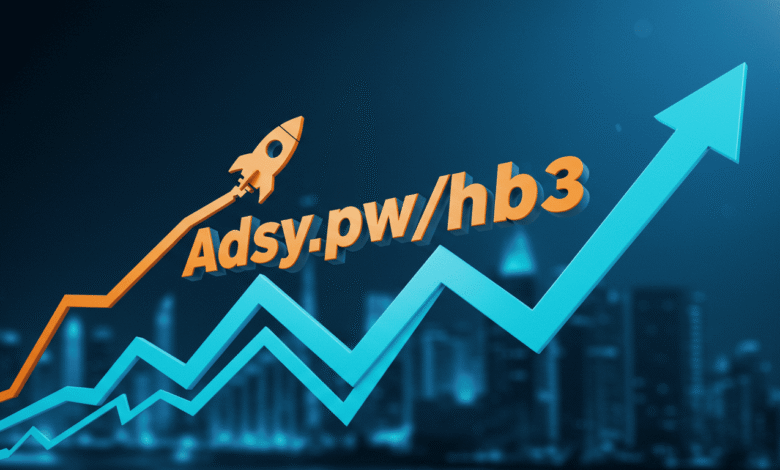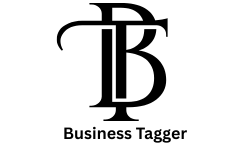Unlocking adsy.pw/hb3: What It Is and Why It Matters

In the vast and often ambiguous world of online links, one particular string adsy.pw/hb3 has started to turn heads. You might have seen it appear in your referral logs, analytics reports, or even random comments. But what exactly is it? Is it a service, a scam, a tracker, or just another fleeting piece of the web’s evolving language?
This article is your deep-dive into what adsy.pw/hb3 represents, how it might relate to your digital presence, and whether it’s something you should be concerned with or take advantage of.
Table of contents
What Is adsy.pw/hb3?
At first glance, adsy.pw/hb3 appears to be just another shortened URL, possibly used for redirecting users. But upon closer inspection, it reflects a growing pattern in digital marketing and referral tracking—where cloaked or shortened links lead to more advanced tracking systems, landing pages, or affiliate campaigns.
“adsy.pw” is a domain associated with link shortening and ad redirection, commonly used in influencer campaigns, affiliate funnels, and occasionally even in referral spam. The “/hb3” suffix likely refers to a specific campaign ID or a shortened tracking code.
While the domain itself doesn’t reveal much, its appearance in multiple digital ecosystems points to a structured, intentional use. It’s often linked with digital media strategies that emphasize visibility, click-through rate optimization, and user behavior analytics.
The Rise of Shortened URLs and Custom Trackers
Why Short Links Exist
Shortened URLs are nothing new. From Bit.ly to TinyURL, marketers and developers have long relied on them to simplify long URLs and embed tracking information. However, with the rise of micro-campaigns and aggressive data attribution models, more services have launched their own custom short domains—adsy.pw being one such example.
The link “adsy.pw/hb3” fits into this modern framework. It’s likely tied to:
- Affiliate marketing redirection
- Paid traffic rerouting
- Campaign-specific landing pages
- Retargeting pixels or cookies
The structure provides two key benefits: clarity for marketers and opacity for users—until you decode what’s behind it.
Is adsy.pw/hb3 Safe?
This is the million-dollar question. In general, shortened URLs mask the final destination, making them risky from a security standpoint. Clicking blindly on a link like adsy.pw/hb3 could lead to anything—from a legitimate marketing landing page to a phishing attempt.
However, in most documented cases, this link has been associated with ad tracking or marketing campaigns, not malicious content. That said, context is key. Where did you find it? Was it in your site analytics or as a referrer? Or was it randomly sent to you?
It’s crucial to analyze:
- The traffic source
- IP origin
- User behavior after redirection
If you’re seeing visits from adsy.pw/hb3 in your analytics tools, it may be part of a referral spam strategy aimed at getting webmasters to click on it out of curiosity
How adsy.pw/hb3 Might Be Used in Marketing
Campaign Tagging and Redirection
Digital marketers are known to employ such custom URLs for directing traffic through several layers of filters, often using redirects for measuring effectiveness. A common setup might look like:
- User clicks adsy.pw/hb3
- Redirects to a campaign tracker
- Then to the original landing page
- While tracking behavior, session data, and conversions
This can be a powerful tool for businesses that are running multiple micro-campaigns simultaneously.
Cloaked Affiliate Links
Another use case: affiliate marketing. Sometimes platforms or influencers mask their affiliate codes under shortened domains to appear cleaner and more trustworthy. Explore how digital-native brands like Qushvolpix are redefining marketing ecosystems using innovative link strategies and brand storytelling.
If adsy.pw/hb3 falls into this category, then it’s essentially a money-link—each click and conversion potentially earning revenue for the link distributor.
The SEO and Analytics Angle
While Google and other search engines prefer transparency, shortened links still find heavy use in:
- Social media posts where character count is limited
- SMS marketing, where brevity is key
- QR code campaigns
- Email marketing, often for cloaking links
From an SEO perspective, links like adsy.pw/hb3 don’t provide direct benefits unless they lead to content-rich, indexed pages. But their indirect impact on traffic measurement and user behavior tracking makes them indispensable in advanced analytics setups.
Should You Be Concerned if You See adsy.pw/hb3 in Analytics?
Not necessarily, but stay alert.
If you’re running a public-facing website and you notice referral visits from adsy.pw/hb3, it may be part of a bot campaign or automated referrer spam. This tactic is used to get you, the site owner, to visit their link.
Here’s what you can do:
- Block the domain in your analytics filters
- Use tools like VirusTotal or Redirect Detective to safely inspect the URL
- Set up alerts for suspicious referrer activity
Again, context is everything. If you knowingly used the link in your campaigns, it’s probably fine. If it came out of nowhere proceed with caution.
Legal and Ethical Considerations
Shortened links like adsy.pw/hb3 aren’t illegal by themselves. But how they’re used can determine their ethical and legal standing. If used to cloak malware or phishing schemes, they can violate international cyber laws.
On the flip side, brands and marketers often use these links within the terms of service of their platforms, assuming full responsibility for content redirection and tracking disclosures.
Always be transparent in your privacy policies if you’re redirecting users through such links.
Conclusion
adsy.pw/hb3 is more than just a URL it’s a window into the evolving tactics of digital marketing, user redirection, and data attribution. While its use isn’t inherently malicious, its obfuscation raises valid questions about transparency and trust. For marketers, it’s a tool. For casual users, it’s a red flag until proven safe.
Whether you’re a webmaster seeing this in your analytics, a marketer looking to learn from it, or a user who’s stumbled upon the link it’s crucial to understand the mechanics behind it. As the web continues to evolve, so too will the complexity of links like adsy.pw/hb3. Stay informed. Stay safe.
FAQs
Q1: What happens when I click on adsy.pw/hb3?
It typically redirects you to another page either a marketing landing page, affiliate offer, or analytics tracker. Without inspecting the redirect path, you won’t know the exact destination.
Q2: Is adsy.pw/hb3 a virus or malware?
Not inherently. But like all shortened URLs, it can be used maliciously. Always verify the safety of the destination using tools before clicking.
Q3: Why does adsy.pw/hb3 appear in my website’s referral traffic?
It may be referral spam bots triggering your analytics to bait you into checking the link. It’s a common tactic in traffic manipulation.
Q4: Can I use adsy.pw/hb3 for my own campaigns?
Possibly, if you control the backend or have access to the link management system. But be sure it aligns with your brand’s transparency and security standards.
Q5: Is there a way to block adsy.pw/hb3 from showing in my Google Analytics reports?
Yes. Use a filter in GA4 or Universal Analytics to exclude traffic from that domain.
Q6: Are shortened links like adsy.pw/hb3 bad for SEO?
They don’t directly harm SEO, but Google prefers transparent, descriptive URLs. Overusing short links, especially in external backlinks, may reduce trust signals.





